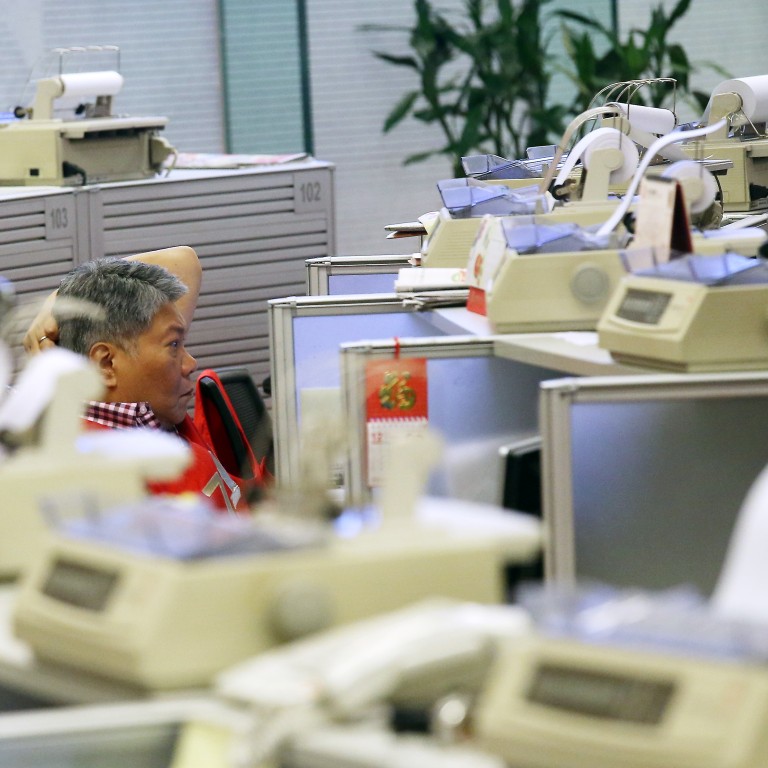
The US$27 billion yuan future and option business is free from mandatory clearing, for now
Regulators seek mandatory submission of all deals to central bodies under proposal, but city questioned on jurisdiction for other currencies
The financial industry has three weeks to give its responses to the latest consultation by the Hong Kong Monetary Authority and the Securities and Finance Commission on a proposal governing the trading of over-the-counter derivatives, which is expected to be submitted to the Legislative Council in January next year.
Voices of dissent are already forming on the proposal, which seeks to end loose bilateral trades long practised by banks in dealing derivatives and hedging instruments.
Under the proposal, the trading of over-the-counter derivatives will be centralised at Hong Kong Exchanges and Clearing.
Trading must be mandatorily cleared and reported, the HKMA and SFC said.
The proposed plan will be launched in phases, first with mandatory clearing for interest rate swaps denominated in Hong Kong dollars, US dollars, euro, yen and pound.
Industry participants with relationships already established with other recognised clearing avenues, such as the London Clearing House, can opt to bypass the HKEx, but they must still be centrally cleared.
The plan follows a coordinated, international drive by other Group of 20 jurisdictions. While swaps in G4 currencies - US dollar, euro, yen and pound - make up 75 per cent of known global derivatives, Hong Kong is not known to be a centre for the products, although they are traded by banks in the city.
Hong Kong dollar swaps make up less than 1 per cent of global trades.
The areas where bankers do have an interest in seeing central clearing - deliverable forwards and yuan-related cross-currency swaps - are excluded in the HKMA-SFC draft. But they are the items that could help cement Hong Kong's position as a pre-eminent yuan hub, under the new normal for yuan volatility.
Yuan-related options and forwards are estimated to be worth US$27 billion by one banker.
Focusing first on interest rate swaps would allow regulators to test the system before the launch of bigger money-making products, experts said.
Meanwhile, the clock is ticking for bankers, traders, market risk managers and legal advisers to study the 176-page document and flag their concerns by the end of the month.
The regulators are seen to be keen on tabling the proposal in the Legislative Council in January, historically the one month the sessions can get bills to work.
If the plan works, it will lay the ground rules for all other over-the-counter derivative trades in the city.
Among the initial worries, a senior banker at a leading global bank questioned the authority of Hong Kong to demand mandatory clearing for the euro and US dollar. "Hong Kong does not have grounds to claim jurisdiction for other currencies," he said.
Keith Noyes, a regional director at the International Swaps and Derivatives Association, said the industry had not been given enough time to study the consultation paper and submit its responses.
Among the conditions and rules proposed by the regulators, Noyes sees triggers for an industry pushback, including a requirement that once a bank's trading position exceeds a proposed US$20 billion threshold, it will always be covered.
Once on the SFC-HKMA list, an institution must report and clear its traded positions, regardless of whether it has changed its business scope or scaled down its size, a scenario Noyes said would make central clearing uneconomical and impractical.
Bankers say most banks keep global trading books tallied at the head-office level. A JP Morgan trade negotiated in Hong Kong with HSBC rarely appears on the local books. It will be seen as a trade between JP Morgan in the United States and HSBC Holdings in Britain.

